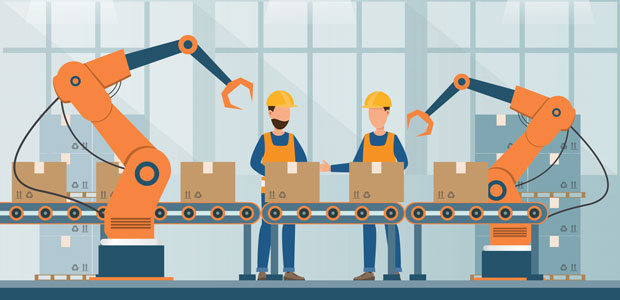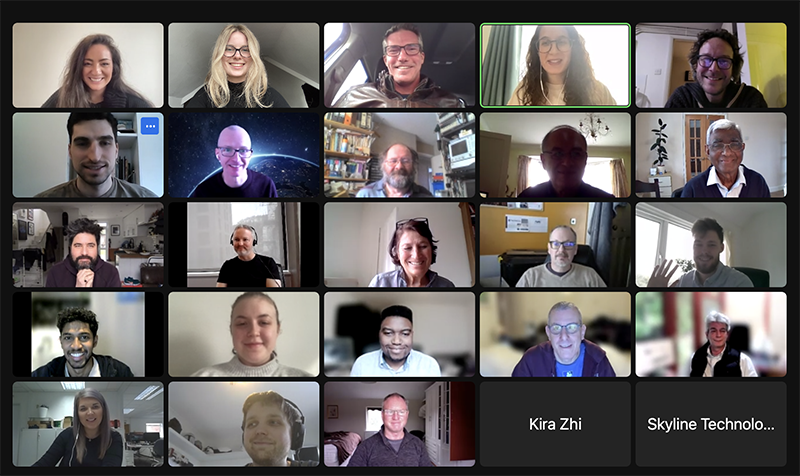
Preparing for Manufacture with CRL and Mouser
Starting a business can be difficult at the best of times, but creating a hardware product often adds a level of difficulty in, especially when it comes to manufacturing this product. There is a lot riding on the stage when you take your product from design to production and it can be one of the most difficult transitions.
Partnering with Mouser Electronics, CRL wanted to provide a workshop to try help and support startups through the product development process. Through the three days of the workshop we got to hear from a number of experts including Mark Patrick from Mouser, Jim Reeves from CRL and some selected partners and suppliers from their networks, who guided hardware-based startups through the process of preparing for production, testing and validating product design, finding and connecting with suppliers, communicating requirements, formalising and managing the relationship to ensure the first batch of the product meets the commercial targets, timelines and customer expectations.
The message from all the sessions was clear that the correct approach to pre-production prototyping, testing, validation and the preparation and communication of clear product design requirements will not only save startups huge amounts of time and money but also ensure the roles and responsibilities in the supply chain are clearly defined and aligned to deliver reliable and cost-effective products.
Jim Reeves Product Development Director at Central Research Laboratory knows the stakes are high and mistakes can be costly when it comes to manufacturing hardware, he said: “We develop programmes like these to help startups better understand, prepare for, plan and navigate the downstream challenges they have yet to experience. In this case, it’s everything from finding a factory, to the processes of tooling, sampling, testing, QC and engineering validation. So often, the need is just good information, and ideally from a number of different perspectives. Only when we have the right information in hand and an understanding of what to expect from a journey, can we can prepare effectively, and navigate to keep things on track.”
With sessions from an array of companies and manufacturers were years of experience in the manufacturing and production scene we heard from Dr Jason Brand of Texas Instruments who explained more on physical prototyping, testing and validation for mechanical and electronic designs, plus how to go about choosing the right components and processes for prototype and production.
CRL’s own Jim then elaborated on the different types of prototyping, choosing the right methods and the positives and negatives to prototyping for testing. Jim also went into detail on getting good data when it comes to prototypes, and design and engineering validation.
DIGI’s Ron Singh taught the startups what is happening in the supply chain and why, and what this may mean for the next few years. Learning about the challenges of RF design, the support for chip-down design and module vs. chip-down came from Claire Steed of Nordic Semi, who explained that with PCB files it is all about taking your time as you don’t want your submission to be rejected by manufacturers. Steve Shipway of NCAB then went on to discuss the best practice in PCB design, and shared some design rules and resources for successful PCB design.
Publitek stole the show when it came to storytelling, as Nigel Steel gave five simple marketing tips for startups which included:
- Knowing your value disciple
- Applying the model SOSTAC
- Building a solid foundation and scaling
- Thinking PESO (Paid, Earned, Shared, Owned)
- Be Agile – Have a plan but be aware things change and sometimes quickly
Mouser’s Head of Technical Marketing, EMEA Mark Patrick also gave a presentation which explained how you need to start with the end in mind, but always remember to keep things simple as complexity costs. He explained: “Make choices to simplify, it will lead to reduced costs and risks and ease the design and manufacturing process.” He also delved into preliminary design which is a step-by-step approach to establish product feasibility before investing in the full design.
The third and final day sae Jim Reeves again sharing his knowledge on production data tooling and sampling and product compliance QC testing and safety. Chris Day and Steve Drew from Jaltek and Tech Works NMI talking on design and manufacturing considerations for new electronic products, and finally Analog Devices’ Chris Cokayne delivering a session on focussing on technology and resources for design.
Recapping on the workshop, Mark Patrick said: “In the startup sector, simply having a great product idea isn’t enough. Knowing how to convert that idea into commercial success is critical and programmes like BOOST can be instrumental in helping founders do that by bringing together a diverse but relevant set of contributors and perspectives, the participants gain insight and knowledge they may not have realised they need. As the saying goes: ‘you don’t know what you don’t know’. By sharing case studies, information sources, and key design principles, the contributors give high-value guidance on how good decisions made early, maximise the chances of success.”

Speaking to some of the startups who participated in the three-day course, the message was clear – a lot was learnt and the programme massively helped, not only with educating, but also encouraging and providing a momentum to push on and continue with business and prototyping.
Stephanie Monty, Founder and CEO at Ostique commented: “I have learnt a lot about factory mindset, first engagements and lots of do's and don'ts! Incredibly useful summary of prototyping/ production methods and when to do what. Really great event.”
Kira Zhigalina, Co-founder and CEO at Deep Sym said: “It's a game-changer to have access to more guidance like this. I feel I have learned a lot and especially became aware that there is so much more to learn but knowing that there is help and support available is very encouraging.”
Soner Ozenc, Makers CAFE said: “The programme was a good intro and provided me with good momentum. Hope the journey continues with the 5 day in-person programme!”
Finally, Jim added: “We always seek feedback on everything we deliver, and we were delighted with the feedback from BOOST manufacture. When you’re a startup founder, there’s nothing worse than creating precious time to gather critical knowledge, only to find the knowledge on offer wasn’t what you needed. I was delighted by the level of engagement on the topics discussed. The questions were flowing. Questions are so valuable, and a great barometer in themselves for the usefulness of what’s being explored.”
With the startups at the heart and purpose of the three-day workshop the goal was for founders to have come away with a fuller understanding of the strategies that lead to successful manufacture, where to focus and what to expect, then they are one good step closer to the realisation of their vision.
Jim on behalf of CRL added: “These short programmes are an opportunity for the founders to grow not only their network of experts and suppliers, but also their network of other early stage businesses, tackling similar challenges. For founders to avoid mistakes, they need more than just process knowledge. They need that, but more importantly they need the context of why. The route will be different for every team, so step-by-step guides aren’t much use. With a good understanding of what all these processes seek to deliver / ensure / minimise etc. (i.e. the why), founders can keep a fixed focus on the goal (rather than the task) and be better equipped to make the right choices along the way.”

